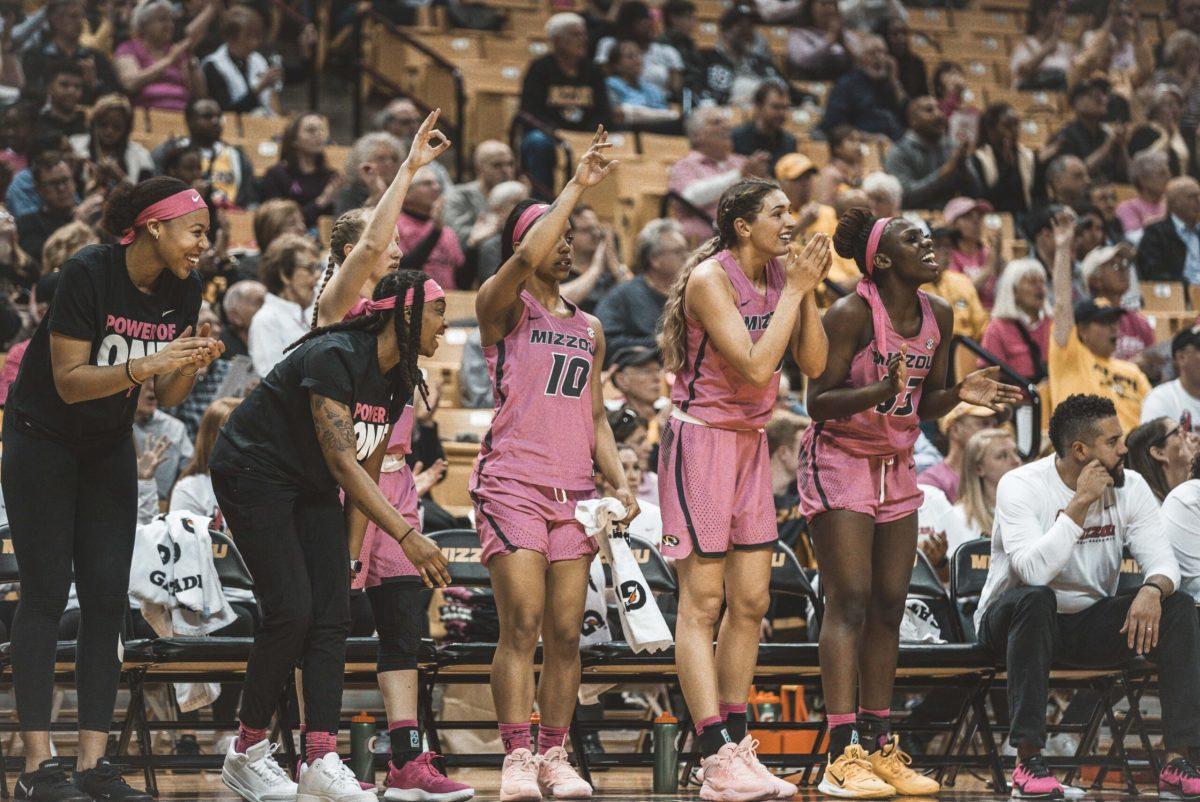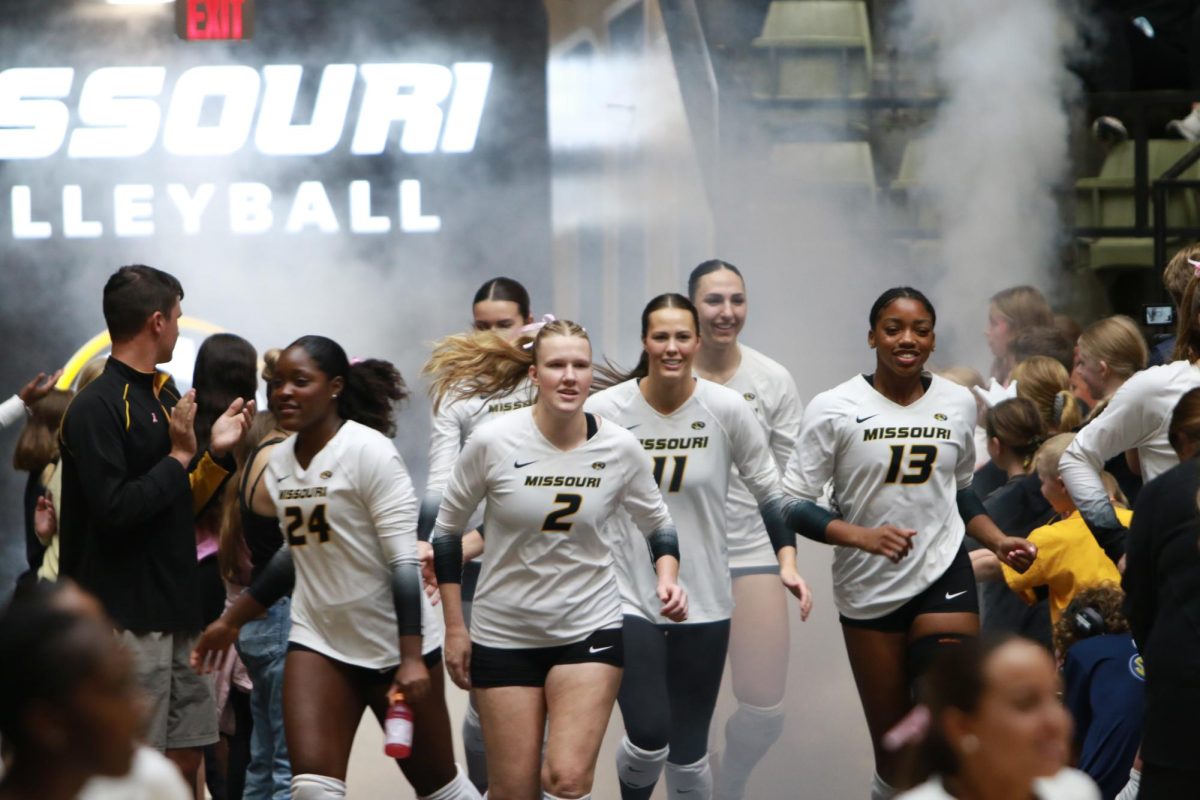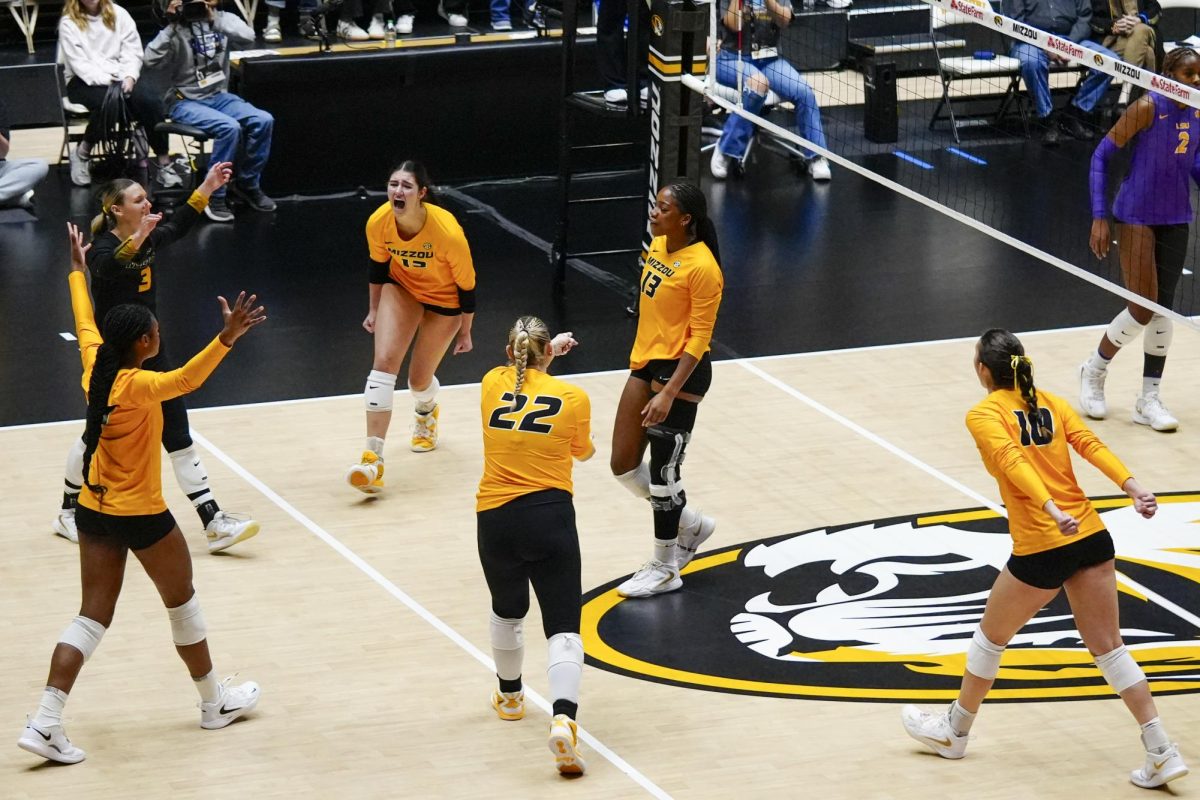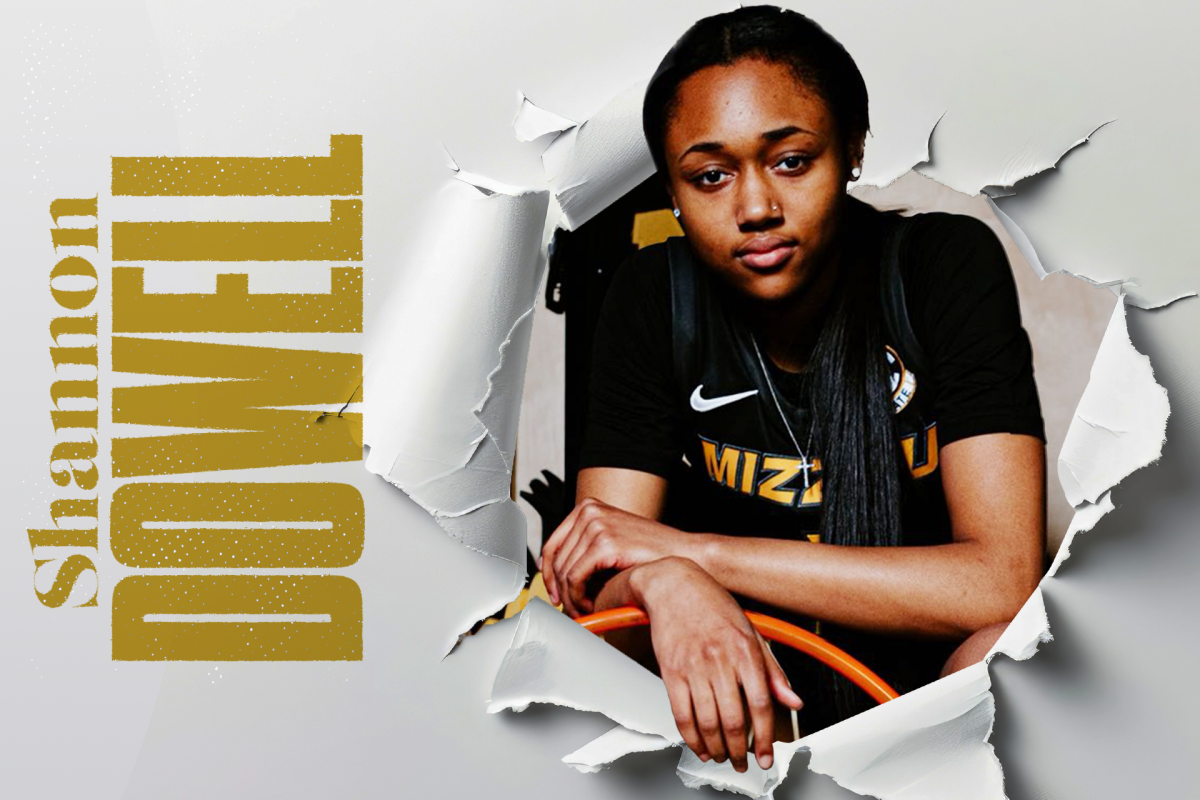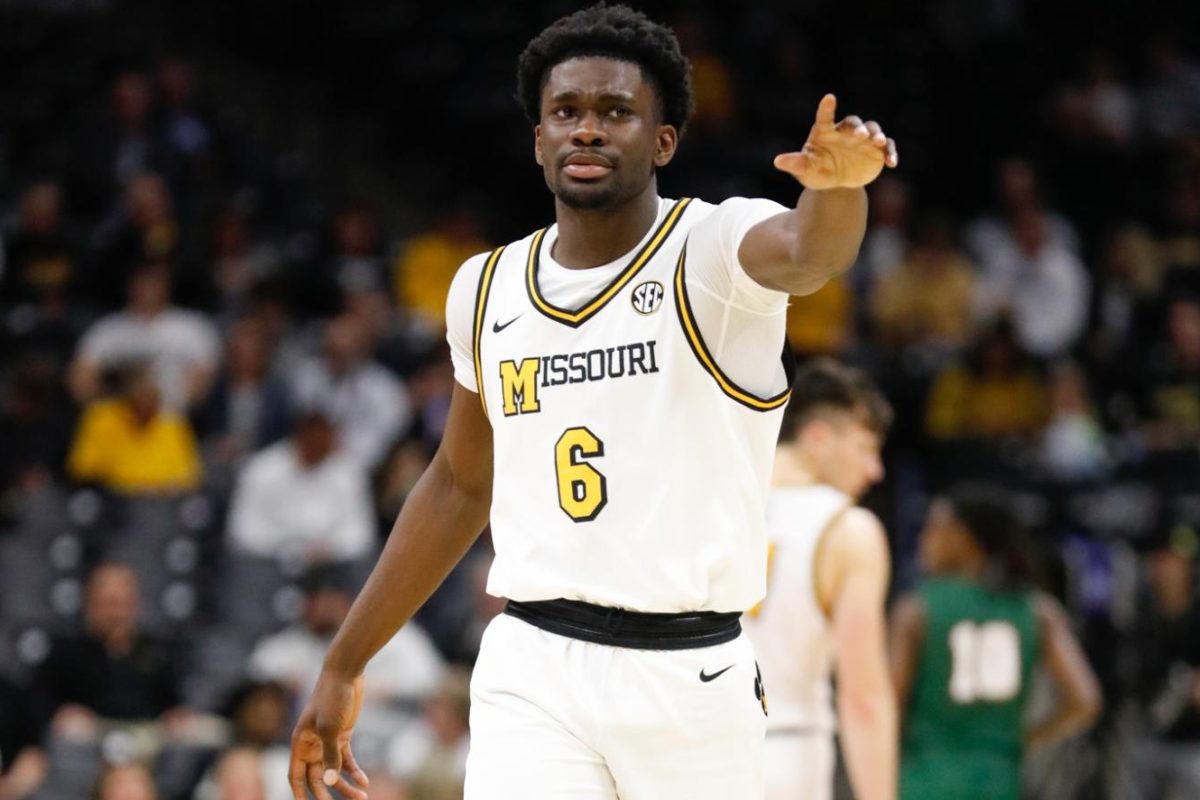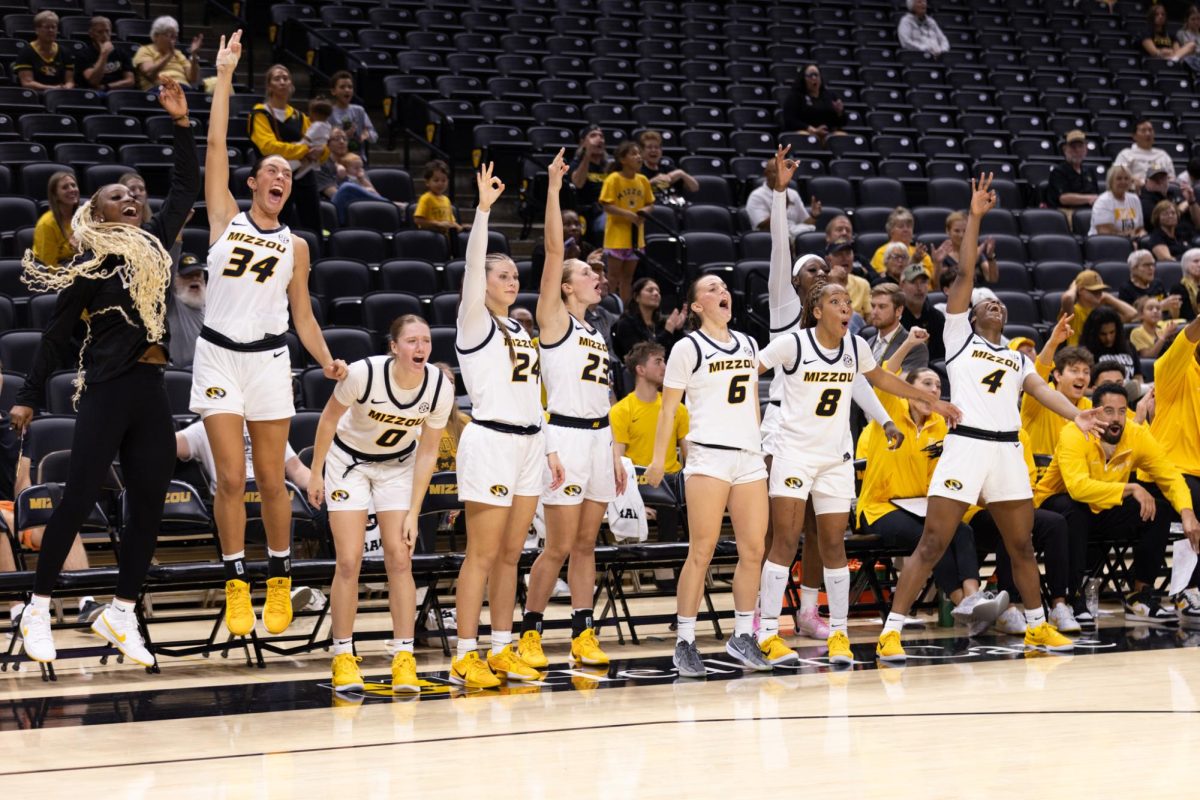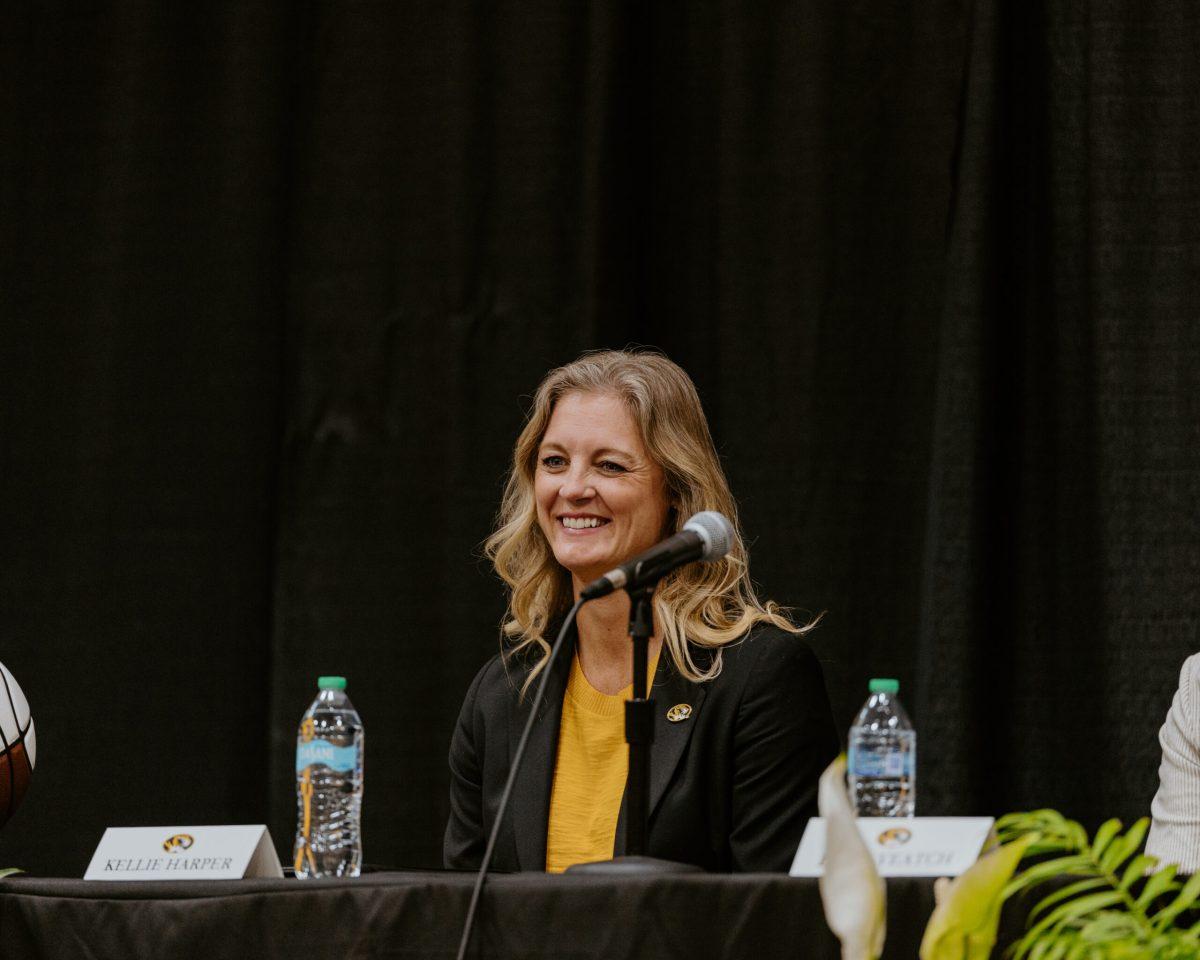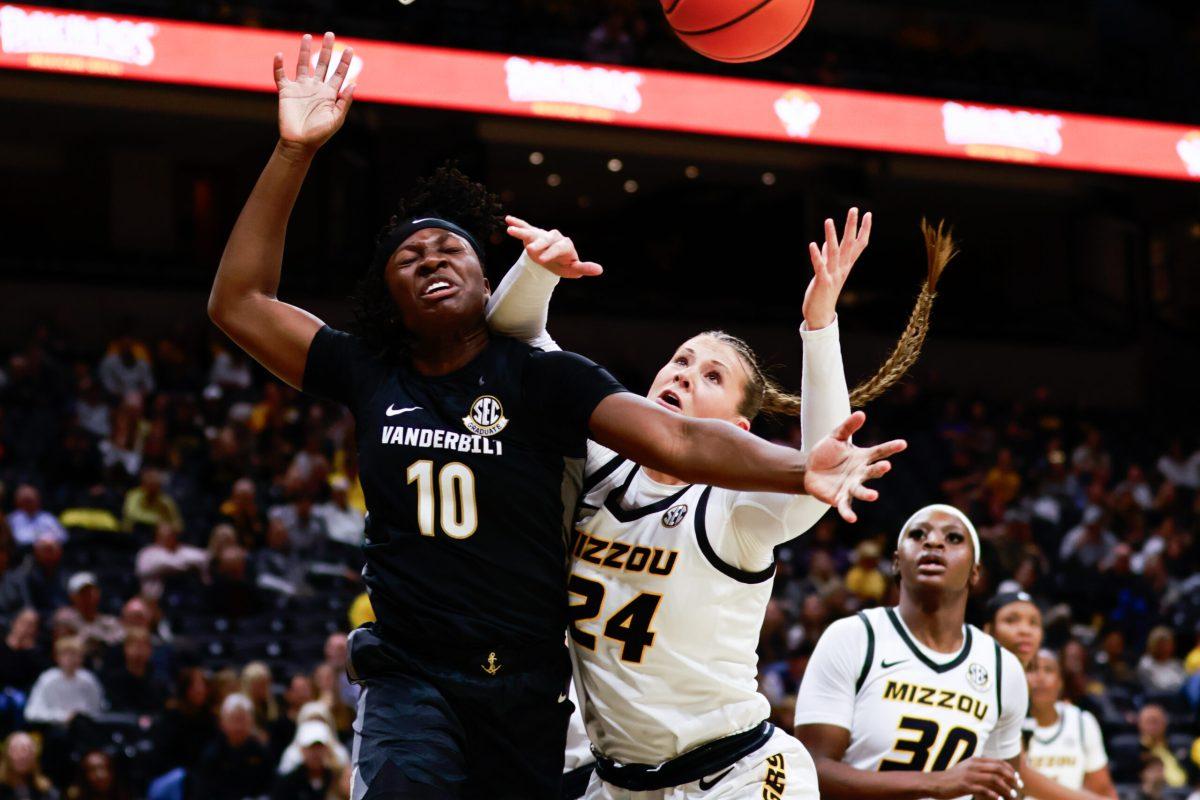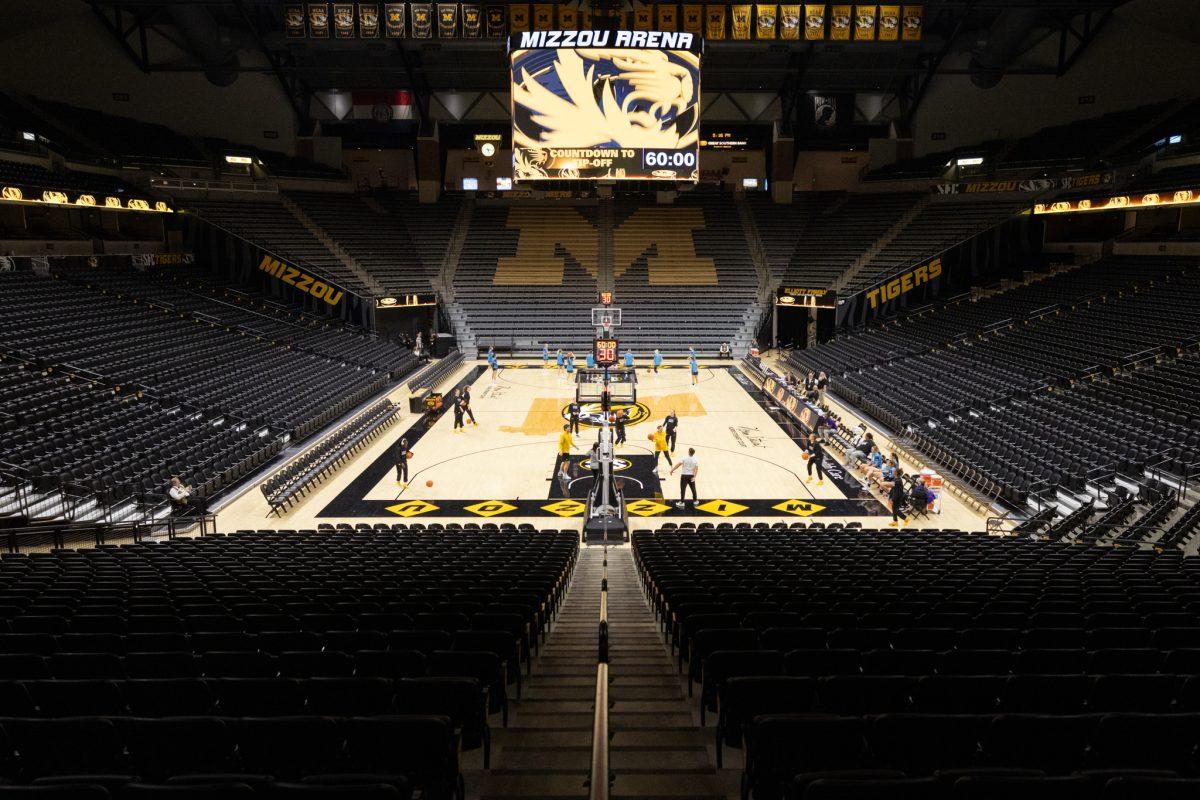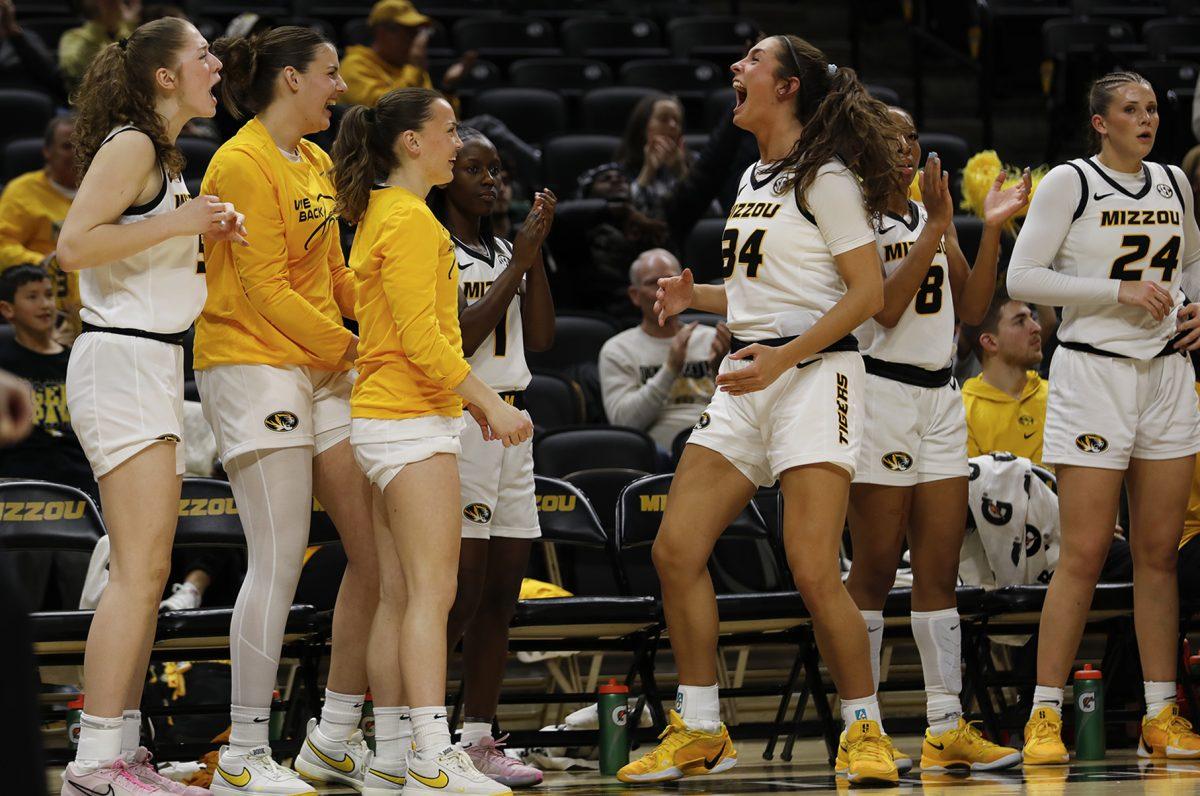Hannah Schuchts wipes tears from her eyes to look up at the Mizzou Arena video board. Amber Smith places her arms around her family, embracing them with her basketball-sized wingspan. Jordan Roundtree makes eye contact with Jordan Chavis and smiles.
The four seniors on Missouri’s women’s basketball team tip off against Ole Miss in less than fifteen minutes’ time. It will be their second-to-last game in their home stadium: the second-to-last time the Missouri Waltz plays in the background of their timeouts, the second-to-last time fans yell three-letter combinations across the court to each other.
After years of games like this, the seniors just want these seconds to last.
“On one hand it feels like it’s been forever,” coach Robin Pingeton says after the game. “And on the other hand, it seems like it goes by in the blink of an eye.”
Missouri’s seniors are warming up for the game. Preparation is an elaborate ritual, one that comes with cones and stretches and uptempo music. Tucked away from the court, their families are waiting in the tunnel. Cameras and promotions staff and referees and ushers fill the hallway as the hubbub of pregame activity flows around relatives and friends. Soon, the seniors will step off the court, emerge from the craziness and return to those waiting. Maybe it’s some sort of metaphor for the day.
Pingeton is here now, walking toward the families, and she offers a hug to everyone. She has a team to talk to, a game to plan for, but she embraces each family member.
There has been so much with these seniors – memorable victories and heart-breaking defeats, joyous celebrations and difficult conversations – and it’s all coming to an end.
The game feels like something of a celebration. The Tigers dispatch SEC bottom-feeders Ole Miss relatively easily in front of a weekend crowd.
After the victory, Roundtree walks over to the scorer’s table and grabs the public address announcer’s microphone to address the crowd. It may not be the last game, but there won’t be this kind of crowd for the final one.
“Thank you, thank you, thank you,” she says. “We love you.”
Even after Senior Day, there’s still one more home game. Auburn, a team situated even lower than Missouri in the SEC standings, is paying a weeknight visit.
During the national anthem, Roundtree stands with her head bowed as cameras flood her face. Smith is the last starter announced, and she hugs Pingeton before stepping into the artificial smoke screen.
The game is far from a victory lap, though. As has so often been the case this season, a disastrous third quarter dooms Missouri and the hosts lose by 13 points.
There’s no resounding moment of glory. With 10 seconds to go in the game, Pingeton subs Chavis, Roundtree and Schuchts out — Smith had previously left the game — and the seniors share hugs in front of the bench.
Then the buzzer sounds and their final game at Mizzou Arena is over.
Pingeton calls it a “really hard day” for her seniors.
“That’s always one of those [things],” she says. “Sometimes you get stuck in your mind, just the emotions of knowing it’s your last game but also trying to be really present.”
Smith watches the closing moments from the bench. “As the game starts winding down, for me, it’s hard not to think about it,” she says.
It’s hard for these home games, for these seniors, to be gone.
All of Missouri’s players make a circuit around the edge of the floor, high-fiving and hugging fans. Then they step into the tunnel, the fans filter out and the legacy begins.
Chavis returns to the arena from the locker room not long after the game ends, still in her uniform. She sits at the bottom of the now-empty student section, staring at her phone, then asks a friend to take a picture of her on the court. It’s the last post-game photo-op on her home court, after all.
In the media room, there’s a teary-eyed press conference taking place.
A reporter asks freshman standout Aijha Blackwell about replacing the seniors. She starts to answer, then stops, choking up.
Blackwell talks about Smith, who’s a seat away on the podium.
“She helped me in ways that I can’t even explain,” Blackwell says. “Just keeping my head on track. Making sure I’m on track with everything: school and basketball.”
Smith lowers her head, hiding her face. Tears are falling.
Blackwell continues: “It’s going to be hard not having her next year.”
But that’s the reality of this senior class: they have been sandwiched between two eras. They played with Sophie Cunningham, enjoying 22-win seasons and NCAA tournament appearances. Then, in a season that was supposed to be the opposite of a “rebuilding year,” they set the stage for a new wave of talent, like freshmen Blackwell and Hayley Frank, to carry the program forward.
Pingeton recognizes that, sees these four as special. They’ve been the bridge.
“Their body of work is bigger than one game in one season,” Pingeton says.
Now, Missouri must do what every collegiate athletic program does every year: thank its leaders and look for new ones. The cycle is relentless, constantly turning over.
Still, that doesn’t make “over” any easier. It’s hard to let go.
_Edited by Wilson Moore | [email protected]_


